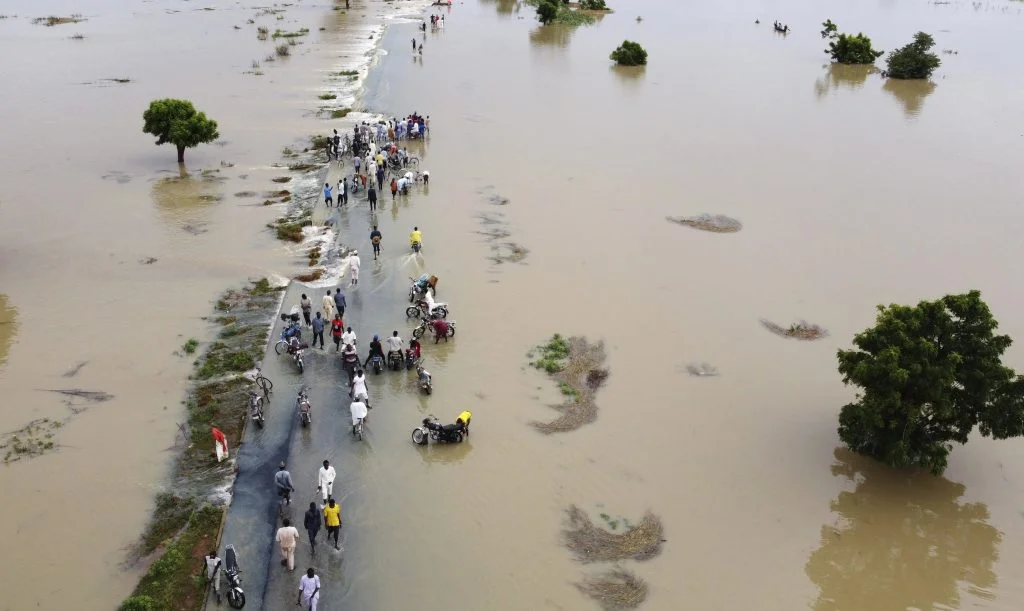The National Emergency Management Agency (NEMA) says a total of 227,494 persons are affected and 32,837 houses have been damaged by flood in 27 states across the country.
This was in a statement issued by NEMA’s spokesperson, Ezekiel Manzo on Thursday in Abuja.
The statement quoted the agency’s Director-General, Zubaida Umar saying, “So far, based on statistics from the NEMA Emergency Operations Centre established for the flood monitoring and coordination of resource deployment, 27 states have been impacted, with a total of 227,494 persons affected and 32,837 houses damaged, as well as 16,488 hectares of farmland with crops also damaged.”
In a recent statement, Umar advised State Emergency Management Agencies (SEMAs) and community leaders to remain vigilant and ready to respond quickly to potential flooding incidents as the peak of the rainy season approaches. She emphasized the importance of being prepared for rapid flood response and urged communities living in flood-prone areas, particularly those along waterways, to consider relocating to safer, higher ground.
Umar reassured farmers not to panic over the temporary dry spell, as the Nigerian Meteorological Agency (NiMet) has predicted that it would end soon. She also highlighted NEMA’s commitment to coordinating and supporting efficient disaster management across the country, noting that the agency had already mobilized efforts to assess the damage caused by recent floods and was working closely with SEMAs to coordinate relief operations.
The agency’s prompt response to the flood incidents, Umar said, was a continuation of the early preparations made by NEMA, including the deployment of search and rescue teams and placing all NEMA zonal and operational offices on high alert.
Umar added that NEMA had begun deploying relief items to complement the efforts of state governments in providing assistance to those affected by the floods. She pointed out that flooding in Nigeria remains a recurrent and severe issue, exacerbated by seasonal rains, poor drainage infrastructure, deforestation, and climate change. These factors, she noted, have intensified the challenges, leading to increased frequency and severity of flooding events, which have far-reaching consequences such as displacement, damage to homes and infrastructure, and disruptions to agriculture and livelihoods.
To manage and mitigate these challenges, Umar stressed the need for improved infrastructure, early warning systems, and public awareness campaigns, underscoring the importance of collective effort in addressing the impacts of flooding across the country.
Get instant and latest news updates via Our WhatsApp Community or Google News online channel.


